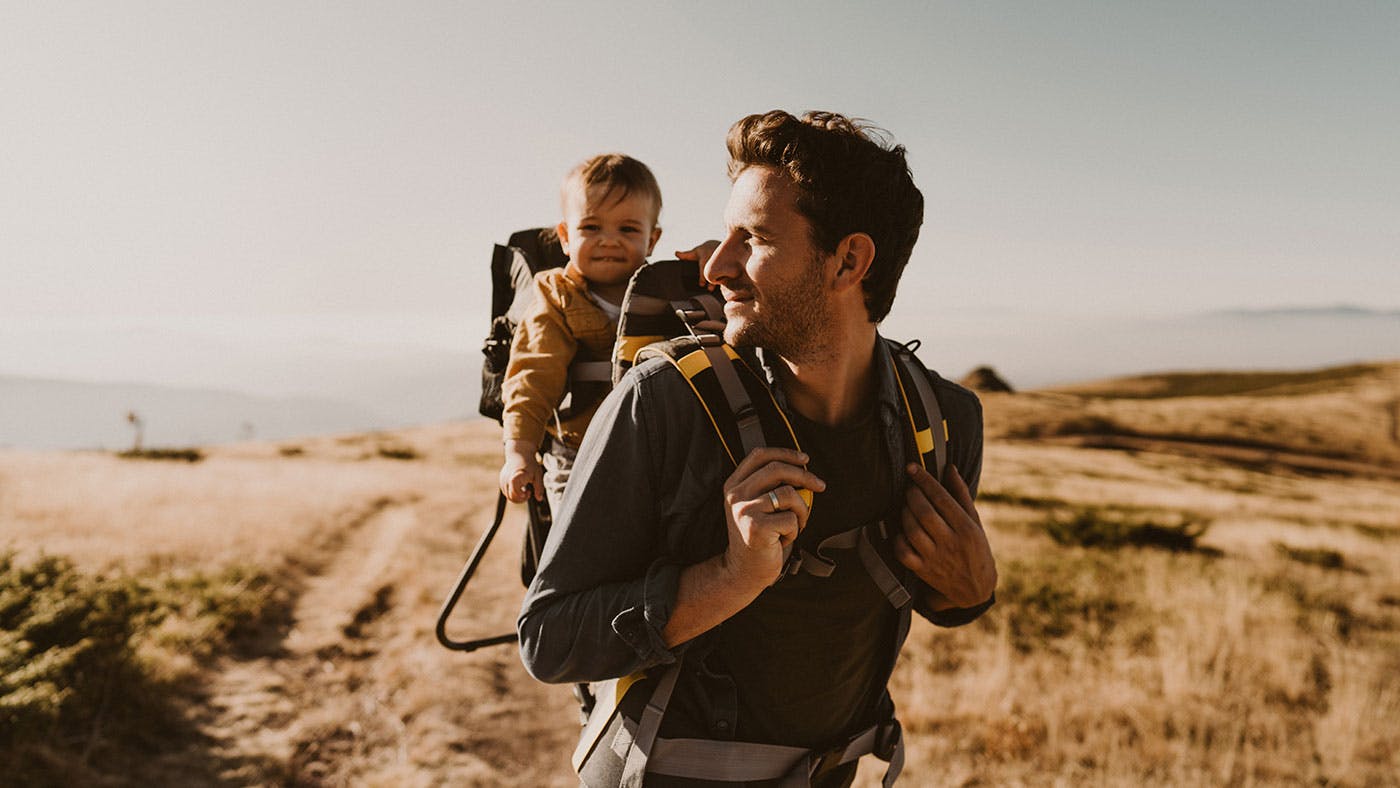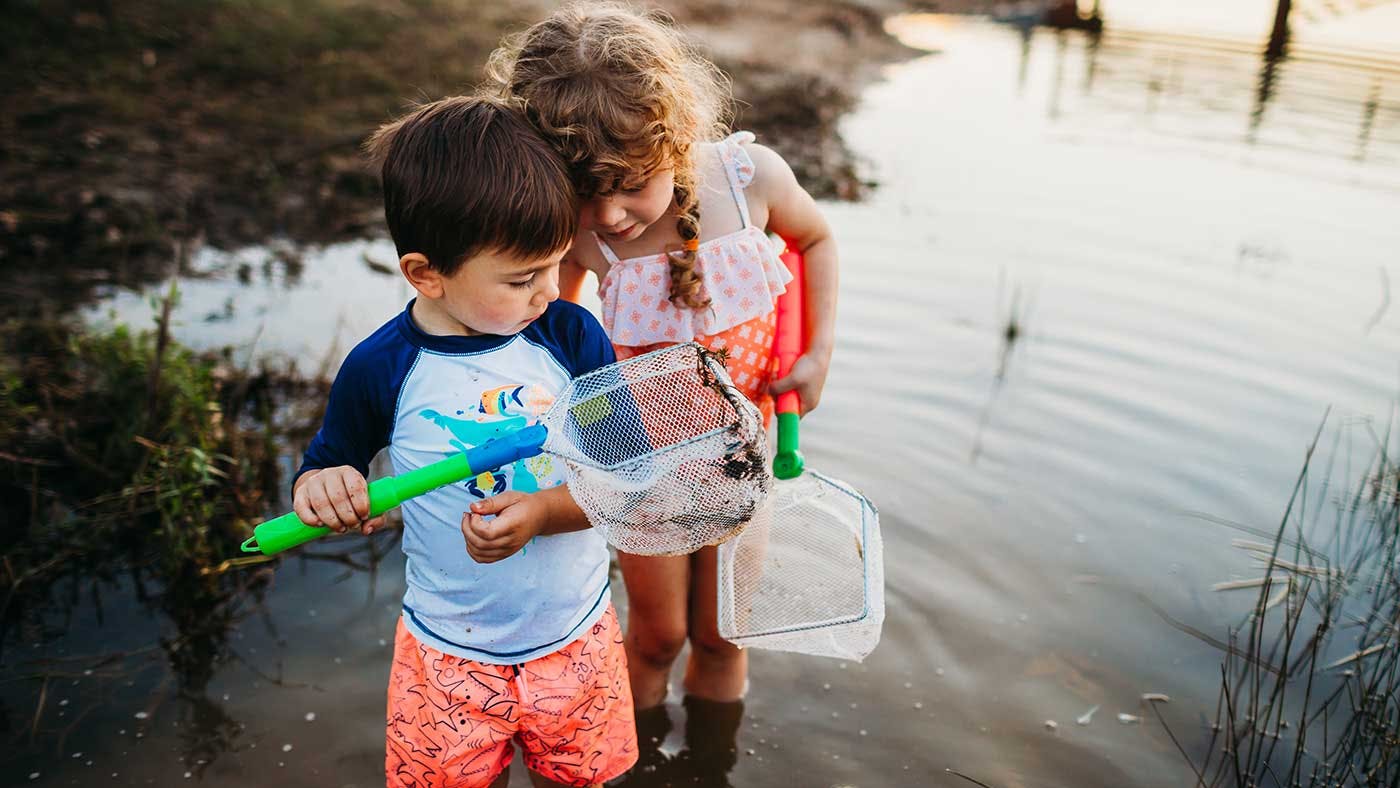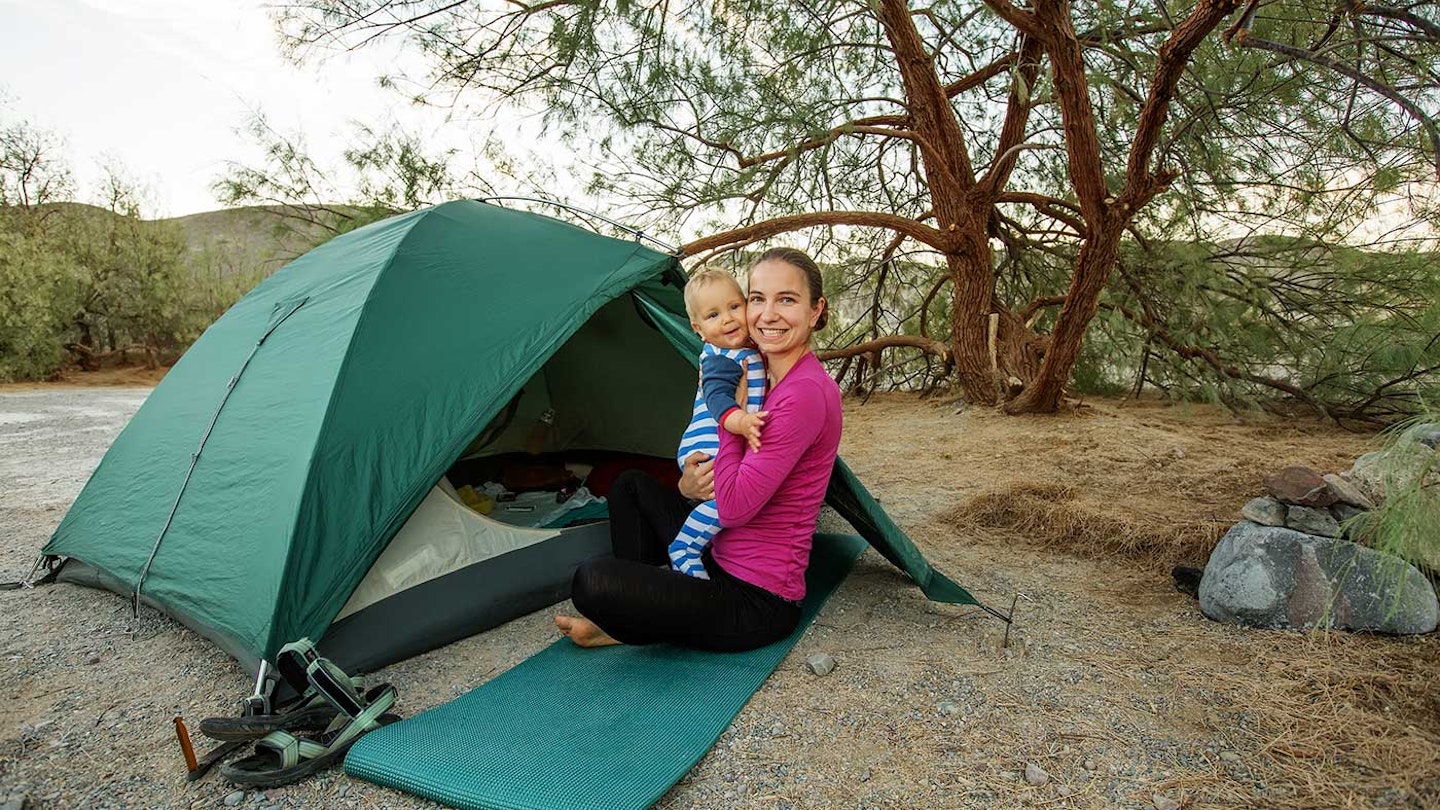Camping with a toddler can be great fun, whether as a family, a group, or even at a family friendly festival. However, when your children are younger, it can help to prepare a few things beforehand, like a toddler travel bed, having an area for their potty, and checking the quiet hours at the campsite.
Whether you were a camping pro in former life, or you’ve never been camping before, things are different with a toddler. We have some need-to-know tips and advice for camping with young children, to take the stress out of travelling with children, so take a look before packing your car and heading off to a campsite or festival.
Tips, hacks and need-to-knows for camping with a toddler
1 - Do your research. If you’re going to a campsite make sure they are family friendly, do they have the facilities you need/would expect? Think about baby changing, family showers and quiet times. If you’re off to a festival you might not get the facilities of a permanent campsite. However, many festivals do have dedicated family camping areas, which might be quieter.
2 - Do a trial run in your garden. If you have the space then pitch your tent in the garden and have a night in it with your toddler. More often than not they’ll love the excitement of the new experience! However, if there are problems you’re a stone’s throw from the warmth and familiarity of your home.
3 - Be prepared to carry your toddler more than you might think. Unless you’re planning to drive to the nearest town, many families will be hoping to explore the countryside surrounding them. If you don’t have a toddler carrier, now might be the time to get one. Pushchairs won't to cut it on a forest trail, or a festival field, look for a light, sturdy, carrier that both parents can use.

4 - Pack plenty of clothes. Make sure you have plenty of spare clothes for everyone, whether you’re in the realms of potty training, or you just have a messy eater, it will put your mind at rest if you have space clothes for every occasion. No one wants to do a late night trip to a supermarket or the laundry block. And don’t forget some hats, both for warmth and protection against the sun.
5 - Pack a first aid kit. It goes without saying that toddlers love to run and explore, ending up with more bumps and tumbles than usual. Go prepared with all the usual plasters and antiseptic wipes, along with something to treat stings. Sun cream is always a good idea for summer trips too.
6 - Take a potty and make sure you have a space in the tent for it. Even a potty trained toddler needs a backup in case your pitch is a fair walk from the toilet block. Setting up the potty in a separate compartment of your tent will give your toddler the privacy and proximity they require.
7 - Get a toddler travel bed**.** Everyone has heard of a travel cot, but what about a travel bed? For those with a child two years plus, who has outgrown a travel cot, these are perfect. Toddler travel beds have sides to keep them from rolling out, but are larger than a travel cot.
8 - Make and take an activity pack. If you’re wanting to get closer to nature, ditch the tablet and get your kids to enjoy their surroundings. Go prepared with an activity pack! Why not include a bug catcher or fishing net, a magnifying glass and a list of things they need to find? It will keep them busy for hours and they’ll soon forget about their favourite TV show.

9 - Take a playpen. If you’ve got space, a playpen is a great addition to help you keep an eye on your toddler when you’re putting up your tent, or packing things for the day.
10 - Take a toddler camping chair. While the adults all love to sit around chatting in a chairs, think about the younger ones too. Toddler camping chairs are the perfect size for the younger members of the group and they’ll feel included when you’re chatting about the day’s activities or planning tomorrow’s. You can even buy some toddler camping chairs with detachable tables which are very handy for meals.
11 - Take a cool box for your toddler’s milk. If you don’t have a portable fridge then the next best thing is a cool box. It's great for keeping food and drinks in it, but also storing your toddler’s milk.
Can I take my toddler camping?
Yes, of course you can go camping with a toddler, or even a baby. However, it definitely pays dividends to be prepared, make sure you know what to expect when you have a little one (or more) in tow.
What’s the best age to take kids away camping?
There’s no hard and fast rule for going away with kids. Some parents will take them away at just a couple of months, whereas others would prefer to wait until they’re toddlers or even older. Whatever age you go camping, just make sure you feel comfortable and do your research.
What should you take when camping with a toddler?
We’ve covered it above, but we can’t stress how important it is to be prepared. Pack that extra change of clothes, for you and your toddler, and make sure you take something to keep them occupied. Enjoy getting closer to nature!
